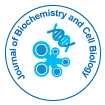Notre groupe organise plus de 3 000 séries de conférences Événements chaque année aux États-Unis, en Europe et en Europe. Asie avec le soutien de 1 000 autres Sociétés scientifiques et publie plus de 700 Open Access Revues qui contiennent plus de 50 000 personnalités éminentes, des scientifiques réputés en tant que membres du comité de rédaction.
Les revues en libre accès gagnent plus de lecteurs et de citations
700 revues et 15 000 000 de lecteurs Chaque revue attire plus de 25 000 lecteurs
Indexé dans
- Publons
- ICMJE
Liens utiles
Revues en libre accès
Partager cette page
Abstrait
Unraveling the Complexity of Cancer: Insights from Molecular and Cellular Perspectives
Shisong R
Cancer a formidable adversary in the realm of human health, continues to pose significant challenges to our understanding and treatment capabilities. This abstract provides a concise overview of recent advancements in cancer biology, exploring the intricate molecular and cellular mechanisms that underlie the initiation, progression, and therapeutic responses in various cancer types. The journey into the heart of cancer biology begins with a detailed examination of oncogenesis, where genetic and epigenetic alterations drive normal cells toward a malignant fate. From the dysregulation of critical signaling pathways to the emerging role of non-coding RNAs, this abstract navigates the intricate landscape of molecular aberrations that characterize cancer development. Moreover, a focus on the tumor microenvironment reveals its pivotal role in shaping cancer phenotypes. Interactions between cancer cells and their surroundings, encompassing immune cells, stromal components, and vasculature, play a crucial role in tumor progression and response to therapy. The dynamic interplay between these components adds another layer of complexity to the understanding of cancer biology. Advancements in single-cell technologies have paved the way for unraveling heterogeneity within tumors, offering insights into the coexistence of diverse subpopulations with distinct molecular profiles. This newfound appreciation for intra-tumor heterogeneity challenges traditional cancer models and calls for personalized therapeutic approaches tailored to the unique genetic makeup of individual tumors. The abstract also delves into the evolving landscape of cancer therapy, highlighting the emergence of precision medicine and immunotherapy. Targeted therapies, exploiting specific molecular vulnerabilities, showcase promising outcomes, while immunotherapeutic strategies harness the power of the immune system to recognize and eliminate cancer cells. The challenges and opportunities in translating these innovations from bench to bedside are discussed, emphasizing the need for interdisciplinary collaboration and ongoing research efforts.
Revues par sujet
- Agriculture et Aquaculture
- Biochimie
- Chimie
- Food & Nutrition
- Génétique et biologie moléculaire
- Géologie et sciences de la Terre
- Immunologie et microbiologie
- Ingénierie
- La science des matériaux
- Le physique
- Science générale
- Sciences cliniques
- Sciences environnementales
- Sciences médicales
- Sciences pharmaceutiques
- Sciences sociales et politiques
- Sciences vétérinaires
- Soins infirmiers et soins de santé
Revues cliniques et médicales
- Allaitement
- Anesthésiologie
- Biologie moléculaire
- Cardiologie
- Chirurgie
- Dentisterie
- Dermatologie
- Diabète et endocrinologie
- Gastro-entérologie
- Immunologie
- La génétique
- Maladies infectieuses
- Médecine
- Microbiologie
- Neurologie
- Oncologie
- Ophtalmologie
- Pédiatrie
- Recherche clinique
- Soins de santé
- Toxicologie

 English
English  Spanish
Spanish  Chinese
Chinese  Russian
Russian  German
German  Japanese
Japanese  Portuguese
Portuguese  Hindi
Hindi